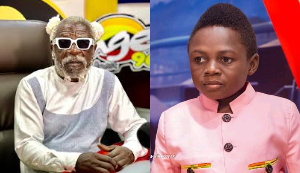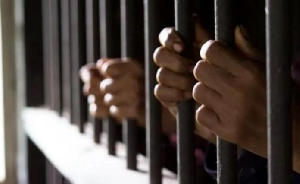*Troubles in the West Africa Gas Pipeline: Trouble in West African cooperation? (2)***
By E. K. Bensah Jr
For almost a second, it seemed like Ghana was going to have to battle out over the regional cooperation project we have come to know, love, and hate as the West Africa Gas Pipeline. If an article in last week’s edition of this Paper were to believed, Nigerians were going to frustrate Ghana’s efforts to try and sanitise its energy sector. The news was bad: that some Nigerians were claiming that it was a bad idea to be distributing gas to Ghana when this country has the capacity to sort out its electricity. This new development compelled some of us to think twice.
First, it could be the detractors of the WAGP (maybe the World Bank that has seen immense potential in how this can facilitate West Africa’s development, and is keen to disrupt it) seeking to pin the blame on Nigeria. We all know the hegemon of West Africa has sound and strong views on many aspects of West African governance, so it was always going to be easy to confer blame on “certain quarters” seeking to destabilize the project.
Secondly, it really could be true that Nigeria is not willing to supply gas. But this would have raised an important question: to what extent, then, should Ghana seek to take Nigeria on? Should it seek legal redess at the Ecowas Community Court of Justice in Abuja, or should it use moral suasion (as in appeal to Nigeria to distribute the gas)? For my colleague-observer and I, this was fertile ground for solid research in the future: when does a member of a regional public good, such as the West Africa gas Pipeline, seek to bring pressure to bear on a hegemon that is also party to the public good—without ruffling its feathers? While the legal redress is there, what are the better options for the aggrieved member of the group?
While it may not be necessary to battle these issues out now, it is important to begin to give it some though. We are all happy that Nigeria will begin distributing gas this week, and we all await with baited breath to see whether it will positively-advance the energy agenda and architecture we are seeking to build for all of us.
Given that the revised ECOWAS Treaty (1993) will turn 20 on 24 July, it behooves this writer to point to a strategic article that gives vent to necessary reflection in the Treaty.
The revised Treaty contains 93 articles, but it is article 28 that explicitly speaks to the issue of Energy under ECOWAS. It reads: “*member states shall co-ordinate and harmonise their policies and programmes in the field of energy. To this end, they shall (a) ensure the effective development of the energy resources of the region*; (b) *establish appropriate cooperation mechanisms with a view to ensuring a regular supply of hydrocarbons…*”, etc. It is sub-section (f) of article 28 that talks about the establishment of “*an adequate mechanism for the collective solution of the energy development problems within the Community*…” It is safe to say that the jury is out on what that mechanism could be—would it be Ecowas Court or an arbitration council for the West Africa Gas Pipeline in this case? Reports indicate that one of the reasons for establishment of the Ecowas Centre for Renewable Energy and Energy Efficiency (ECREEE), based in Cape Verde, was to sanitize the West African energy scene.
I can foresee that as the success of the West Africa Gas Pipeline is tested—“tested” because this might not be the first time a ship’s anchor might hit the pipeline— neither will it be the last time it takes so long to have the pipe fixed because of external damage. It certainly might not be only four countries that will remain members of the WAGP. We know, for example, that in October 2012, the ECOWAS Vice-President Macintosh was in Liberia to consider a $2.5 million study to integrate the country into the regional gas supply infrastructure, the West African Gas Pipeline Project (WAGP). We also know that Cote d’Ivoire is considering being part of the regional project.
What this means is that as members begin to join, there will be challenges that are going to test the *qualitative* nature of the project. Without a shadow of a doubt, Ghana, ECOWAS, and the other member states are going to be confronted with questions on whether it was a good idea to have invested some 16% into the WAGP; be tested on questions of conferring a degree of sovereignty to the project; as well as challenges of errant members. The extent to which Ghana, and other member states respond—especially because it is the *de facto* hegemon (Nigeria) – that is providing the bulk of the gas to the other member states will be a test of the future of governance around the West Africa Gas Pipeline.
Is Ghana ready to take the plunge?
*In 2009, in his capacity as a “Do More Talk Less Ambassador” of the 42ndGeneration—an NGO that promotes and discusses Pan-Africanism--Emmanuel gave a series of lectures on the role of ECOWAS and the AU in facilitating a Pan-African identity. Emmanuel owns "Critiquing Regionalism" (* http://critiquing-regionalism.org*).
Established in 2004 as an initiative to respond to the dearth of knowledge on global regional integration initiatives worldwide, this non-profit blog features regional integration initiatives on MERCOSUR/EU/Africa/Asia and many others. You can reach him on *ekbensah@ekbensah.net* / Mobile: +233-268.687.653.*
Opinions of Friday, 12 July 2013
Columnist: Bensah Jr., Emmanuel K.














